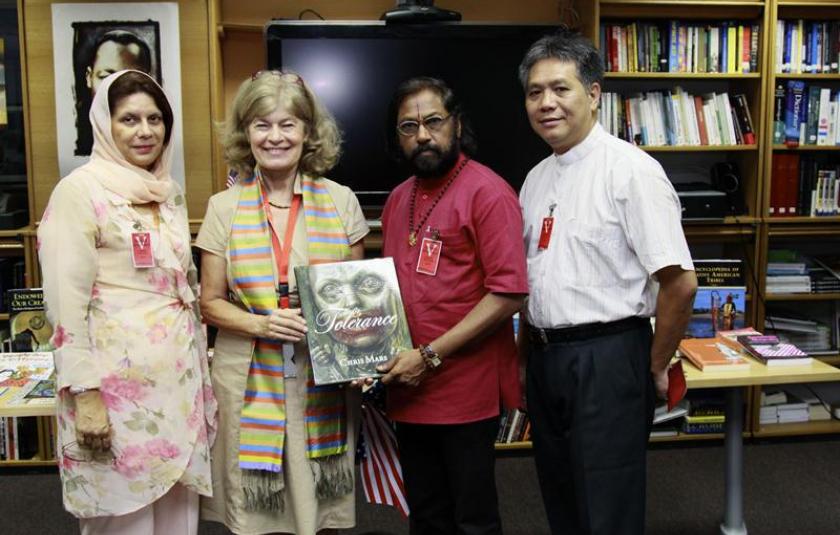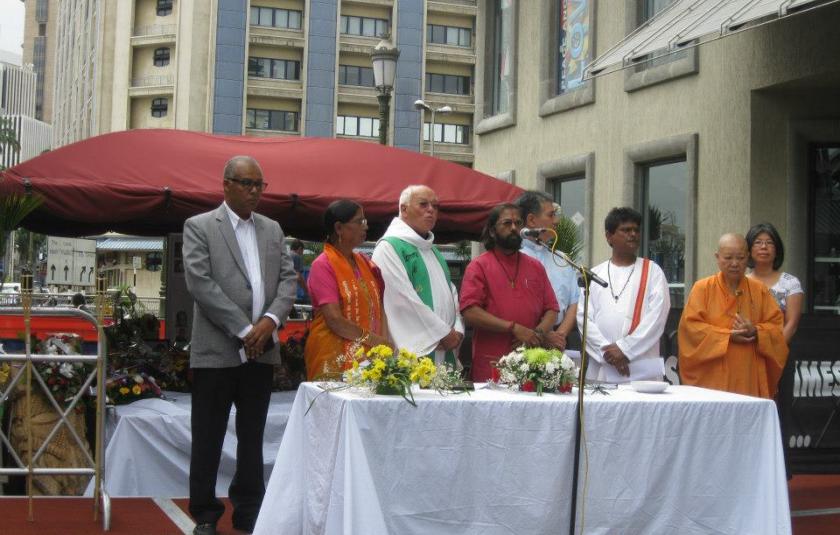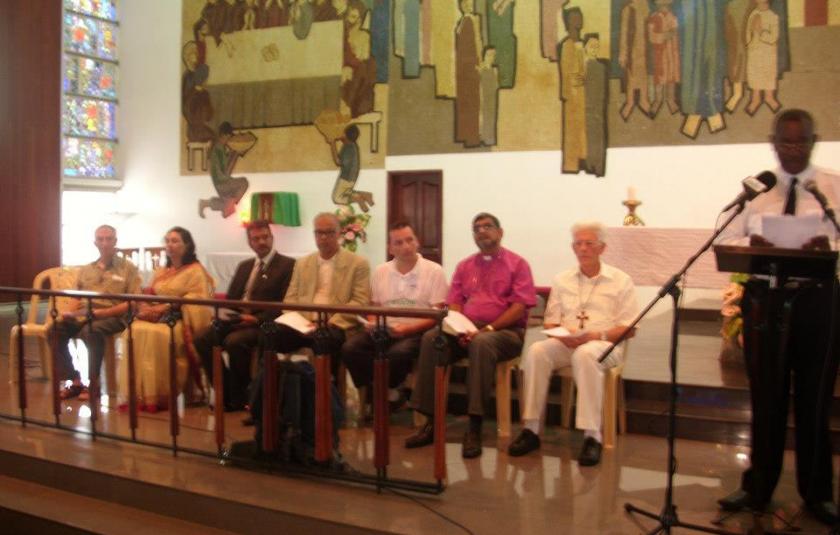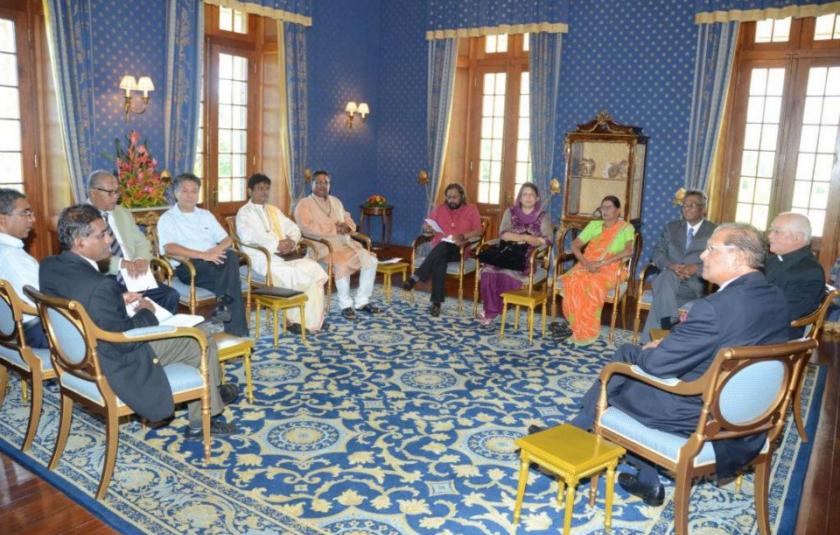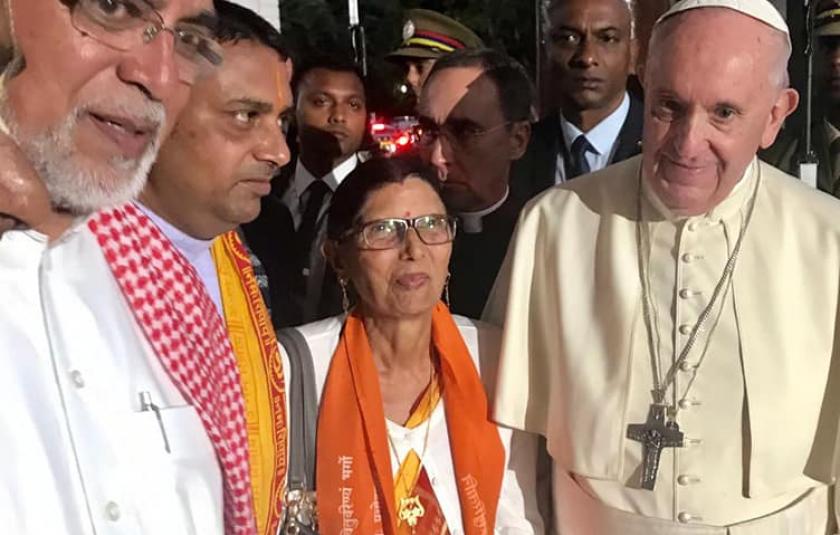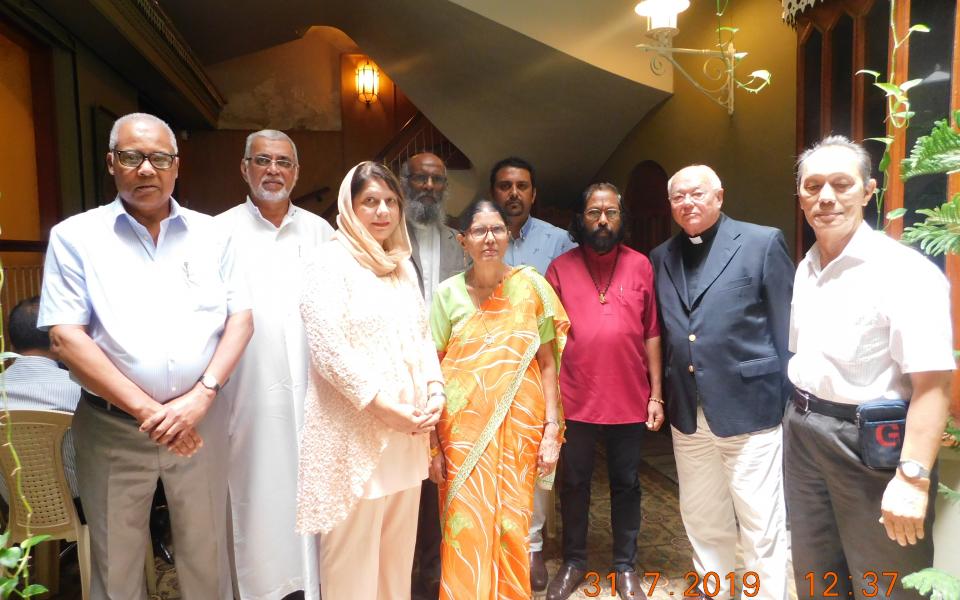
Council of Religions (CoR) is an NGO that fosters understanding in our multi-cultural and Multi-ethnic Society. It aims to promote harmony and to engage in peace-building activities among all people, through training at all spheres of education - Primary, Secondary and Tertiary.
Since 1994 there have been continued efforts to encourage inter-faith dialogue and coordinate religious leadership in Mauritius. In the context of the International Year of Family, the Minister of Women’s Rights, Child Development and Family Welfare was the first to convene the religious leaders of Mauritius to set up a committee to reflect and to advise the Ministry for a better quality of the life for Mauritian citizens. From 1996 to 1999 the former President of the Republic, Mr. Cassam Uteem, continued the work by establishing the “President’s Advisory Council”.
The Council of Religions was formally established in 2001, in the wake of the World Peace Summit convened in 2000 under the auspices of the United Nations to foster peace and support inter-religious dialogue. Five religions, namely the Baha’i Faith, Buddhism, Christianity, Hinduism and Islam form the nucleus of the Council and support a vision to channel the power of religions, foster peace and bring about a better life in Mauritius.
The intention of such cooperation among the religious and spiritual communities across Mauritius is to work together on an interfaith basis with effective guidance for shared understanding. The aim of such action is to develop understanding among believers of all the faith communities in Mauritius of their shared core values and to combat prejudices of all sorts, particularly through targeting the youth.
Common human national objectives have helped the Council of Religions in Mauritius become a living inter-religious group, and a rather strong community. The bonds that unite members of this inter- religious community goes further than mutual respect and tolerance. In view of this goal and in recognition of the invaluable contributions from faith-based initiatives to health promotion and to HIV/ AIDS responses globally, an advocacy meeting with UN Secretary General, Kofi Annan, was organised in January 2005 in Mauritius. The Secretary General appealed to the members of the Council to work in partnership with other stakeholders in the fight against HIV/ AIDS, and to particularly address the issue of stigma and discrimination in Mauritius.
From then on, the Council of Religions and the United Nations have worked on a common Action Plan against HIV and AIDS from September 2006 to December 2009. Father Philippe Goupille, President of the Council of Religions explained that this plan aims mainly at “forging compassion in the face of HIV and AIDS suffering, and to create an environment where stigma and discrimination no longer flourish and where kindness is extended to marginalized groups in our society”.
